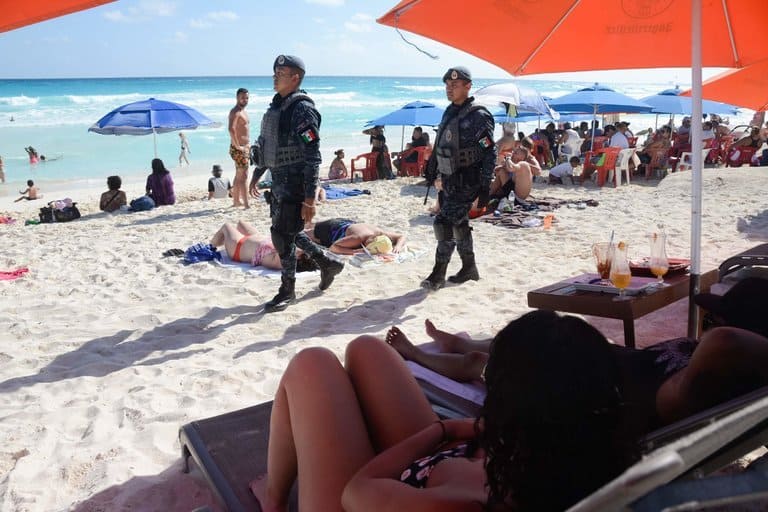There are over 16,000 private military and security companies (PMSCs) in operation in Latin America, collectively employing over two million people, with these figures growing every day. These security companies hire more citizens than the police. Though this is a phenomenon worldwide, the amount working for the PMSCs in Latin America is significant.
According to a recent study by Inter-American Dialogue, the ratio of PMSCs police officers is 4:1 in Brazil, 5:1 in Guatemala, and 7:1 in Honduras. Rapid growth in private, unregulated security companies in Mexico has contributed to corruption, human rights abuses and excessive use of force as the country suffers record levels of violence. Mexico recorded its highest murder rate in 2017 and companies also face rising levels of burglary, robbery, cargo theft and extortion.
All of this has spurred demand for private security services, a market worth billions of dollars. The National Security Council estimated that in 2016, the private security industry (not including unregulated security firms) was worth $1.5 billion – a sharp 180 percent increase from 2012.
The rapid growth of the loosely-regulated private security industry has contributed to a security inequity in the region. Most of the work of the PMSCs are conducted for privately wealthy individuals and groups that can afford to pay for their own security. The industry takes qualified personnel from government security forces, leaving them understaffed and forced to hire and train less experienced personnel.
But up to 80 percent of the PMSCs in Latin America work outside government regulation and the proliferation of armed private security personnel operating without oversight creates risks.
In some cases, this has meant killing local people and activists who have demonstrated against clients, especially larger clients like corporations searching for oil or other natural resources. Private security firms have also been infiltrated by gangs in El Salvador and accused of committing extrajudicial killings in Guatemala, underscoring how lax oversight and regulation can fuel criminality.
Further complicating the accountability of PMSCs within these countries is the lack of registration. Every Latin American country has laws on registering PMSCs, but they do not enforce them. And many PMSCs avoid registration because of the expensive fees involved in doing so.
The US government and global human rights groups are urging Latin American countries to adopt agreements that provide guidelines and framework for authorizing PMSCs, training of PMSC personnel, regulating their possession of weapons, monitoring their compliance with applicable regulations, and enforcing a system of accountability for misconduct.
Analyst comment: Many US-based PMSCs are experiencing a surge in demand for their services in Mexico and the Latin American region of countries. As these governments face growing internal and external pressures to regulate the PMSCs in their respective countries, expect demand for US-based PMSCs by privately wealthy individuals and businesses to continue to grow. (SCG)

